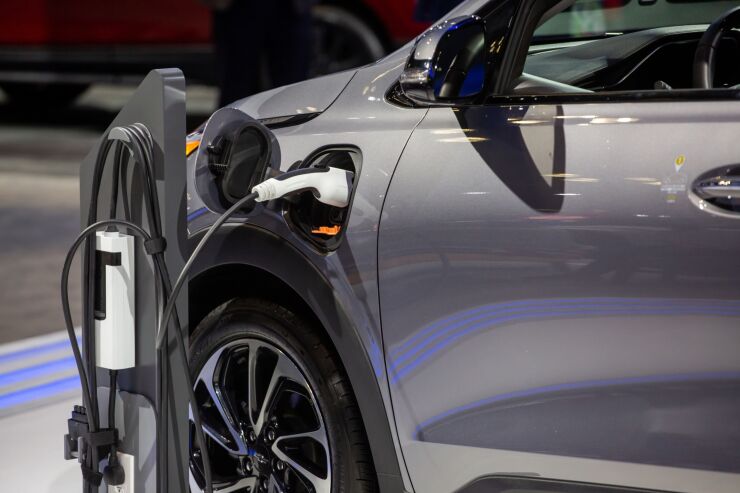Buying certain electric cars in the U.S. just got cheaper, thanks to
And a wave of companies that let wary drivers lease or subscribe their way to an electric vehicle are making the most out of the government carrots. "They've got to be convinced," says Andrew Krulewitz, founder of Zevvy, an EV financing startup. "Buying cars is a big deal."
Zevvy, based in Hayward, California, offers six-month EV leases targeted at Uber drivers and others who spend considerable hours behind the wheel, giving them a different path into a Tesla, Chevy Bolt or other electric model. The startup scraps the usual mileage caps in favor of a pay-per-mile price, which is designed to

Octopus Energy Ltd., a green power provider
Signing up for this service, called EV Concierge, can cut a customer's monthly energy bill by 20% to 30%, according to Chris George, the US EV director for Octopus. He compared this to programs with smart thermostats where utilities will automatically
Autonomy, a startup based in Santa Monica, California, is treating an EV a bit like a Netflix account. The company offers new EVs as an open-ended month-to-month lease, what it calls a subscription plan. Chief Executive Officer Scott Painter says the company, which started in February 2022, is now leasing about 15 to 20 cars a day.
A few years ago, EV leases were
Then the pandemic choked automotive supply chains, sending car prices up and the number of leases down. EVs in particular suffered from long delays and fluctuating prices. The share of new EVs financed via lease fell to 9.9% in the third quarter of last year, from 48.3 in 2017, according to credit-reporting company Experian. (For all cars, the lease share dropped to 18.5% from 30.5%.)
Melinda Zabritski, Experian's senior director of automotive financial solutions, says the trickiest question with EVs is determining the residual value — how much the car might be worth in a few years. Battery durability and consumer appetite for used EVs are still hard to predict.
One fix for this would be getting more EVs in circulation. That's the intent of President Joe Biden's tax credits, which give consumers up to $7,500 tax credits toward 22 different models purchased after Jan 1. In December,
A report
Since the Biden tax credits are set for certain income levels and car prices, consumers may think they or their chosen car qualify when they don't, says Autonomy's Painter. But as a fleet manager, Autonomy can access the credits on all its vehicles. "That's a little bit easier for us to navigate than the consumer," Painter says. The consumer just sees cheaper cars: Autonomy now offers a
Krulewitz says Zevvy will similarly pass savings from its EV purchases down with lower monthly lease rates. He also plans to help customers hunt for other government discounts and loopholes. In some places in California, the only state where Zevvy operates, Krulewitz says local incentives added onto Biden's plan can cut the price of a $30,000 EV by two-thirds. Likewise, Octopus fills out the paperwork itself for public perks, such as a Texas cash-rebate program, as part of its Concierge leasing package.
While government discounts could help these startups move more cleaner cars, they could also bring additional competition. If foreign automakers are only allowed access to Biden's credits via leasing, they might start more aggressive financing programs for their EVs, says BloombergNEF's Cantor. Big carmakers certainly have the cash, captive lenders and dealer networks to do so.
A bigger hurdle for these startups might be dealing with the production timetable that remains outside their control. Will there be even enough EVs available to lease out to all the interested customers in the coming quarter? "I have no idea," Krulewitz replies.
Last summer, Autonomy said it planned to





